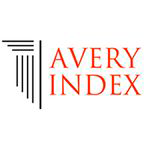Publication Ethics Policy
UOU scientific journal is committed to the ethical and transparency principles and to the good publication practices established by the Committee on Publication Ethics (COPE), in order to ensure compliance with ethical and quality standards in all published works. The above principles and practices are applied together with the following publication ethics policies and our anti-plagiarism policy.
1 Authorship and contribution to manuscripts
Those listed as authors or co-authors must have made substantial contributions to all of the following:
- Research: conception and design, acquisition of data, or analysis and interpretation of data.
- Article: drafting or critical revision regarding important intellectual content.
- Approval: of the final version of the article before submission for publication.
The number of authors (no more than 6) of the paper must be justified by the topic, complexity and length of the paper. The order of signature must be agreed upon by all authors, and those having contributed the most must appear first.
2 Conflict of interest
Authors must expressly state any personal or financial connection that may influence the conclusions of the manuscript. Otherwise, they must declare that there is no conflict of interest involved. The editorial board will evaluate the information provided and decide whether a conflict of interest exists and, if so, whether it can be avoided. If it cannot be avoided, the manuscript will be rejected.
Referees must reject proposals for manuscript reviews if there is a conflict of interest due to any type of affinity, contractual or direct collaboration relationship. During the review process, they must expressly declare that no conflict of interest exists.
3 Reports of malpractice, retractions and corrections
Any person may contact the journal to report possible cases of malpractice, plagiarism, falsification of data, etc., concerning articles published in UOUsj. The editorial team will investigate the matter, give the authors a period of 10 days to replay to any allegation, and then the journal will decide on the matter. If malpractice is found, the PDF file of the article will be removed from the issue in which it has been published, and this circumstance will be expressly stated. The editorial board will at all times facilitate the publication of retractions for any of the above reasons or for unintentional errors.
In the event that serious errors in articles already published are discovered by those responsible for the articles, they must inform the editorial board, which may consider the publication of an erratum slip accompanying the article. Spelling or grammatical errors will not be considered serious and, therefore, no erratum slip will be published in those cases.
4 Complaints and suggestions
Anyone may submit a complaint or suggestion by e-mail to the main contact person of the journal, who will forward it to the editorial board. The board will then examine and decide on the matter, and the person involved will be informed.












